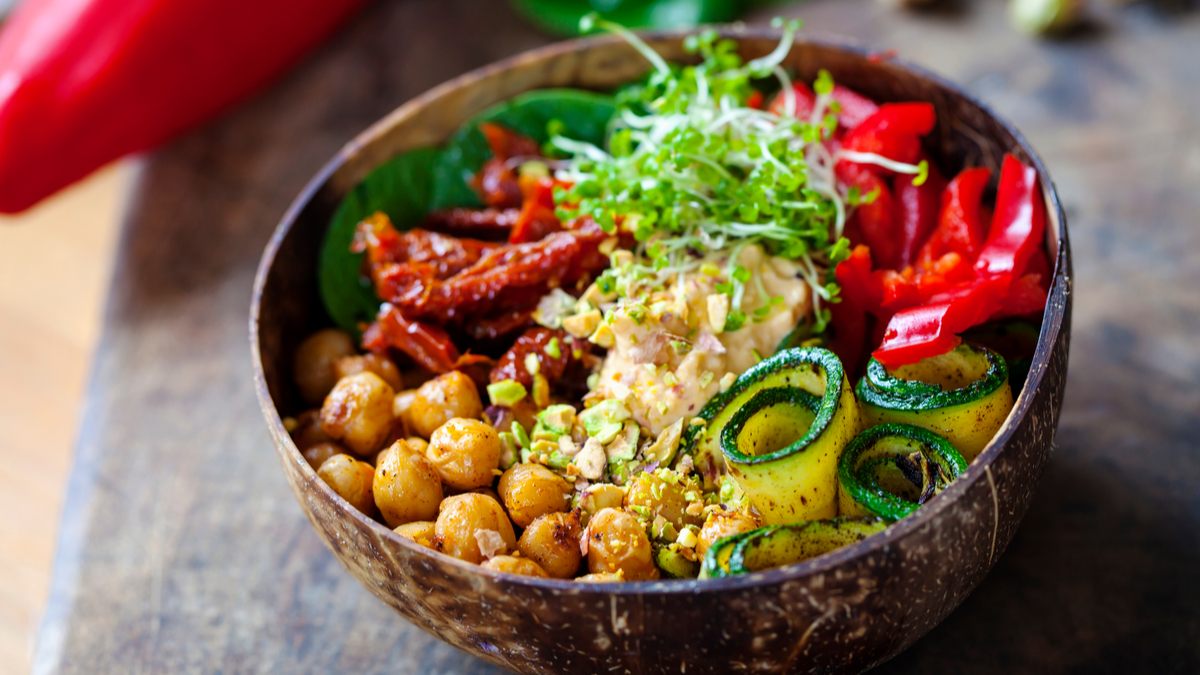Ask the expert is a regular Top Santé advice column answering your questions about all aspects of health, fitness, beauty, and wellbeing. Here, immunologist and author of The Science of Staying Well, Dr Jenna Macciochi (drjennamacciochi.com) gives her advice on looking after your immunity.
Reader question
Q: I’ve had a viral infection – how can I help build back my immunity?
Immunity expert’s answer
A: The first thing is to listen to your body. Symptoms might have started to ease but if you are still feeling worn out and not back to your usual self, honour and accept this by getting the rest your body craves.
Infection-fighting inflammation instructs your brain to adapt your behaviour, which is designed to help you reorganise your priorities and give your body time to recover. Called “sickness behaviour”, these adaptations include lethargy, social withdrawal and changes in appetite.
Look after your nutrition
Make sure you are taking a vitamin D supplement daily and eat foods of high nutritional quality to recover essential vitamins and minerals. Fibre is important, so eat fresh produce, wholegrains and legumes, and consider taking a probiotic. Eating protein at each meal is particularly important to support immune function and prevent muscle wasting if you have been bedridden or are suffering from a prolonged recovery.
If your appetite is still off, spread food out across the day with regular small meals. If you are unable to eat all the recommended food groups, consider taking a multivitamin supplement.
 Reader question
Reader question
Q: When I feel super stressed, I always end up getting sick, especially when I then take a break – why is this?
Immunity expert’s answer
A: You will be familiar with that feeling of psychological pressure ahead of a looming deadline or demanding event. Or you might have experienced a ‘near-miss accident that threatened your life. No matter whether the trigger is – psychological or physiological – you only have one biological stress response: adrenaline and cortisol initiate a raft of changes in your body, including a racing heartbeat, changes in digestion and increased breathing. Stress is designed to motivate you to stay safe. It primes your immune system for action across minutes to hours.
Getting ill when you go on holiday?
But chronic or frequent intermittent stress, if you don’t manage it, can be very detrimental to your immune system, leaving you more susceptible to infections. The term “leisure sickness” describes this phenomenon in people who, at work are under pressure, then fall ill as soon as they take a break. The pre-holiday build-up, with its associated increased workload and preparations, exceeds your stress capacity, suppressing your immune system.
Stress can also result in poor sleep and negative lifestyle behaviours, such as eating unhealthy foods and drinking more alcohol.
Running on adrenaline, you can keep going if you catch a bug. But with a suppressed immune response, you don’t get symptoms until the moment your holiday starts, when the stress response abates and your immune system can launch into battle.
In other words, you might fall ill before your holiday and only notice it when you start to relax.
 Reader question
Reader question
Q: How do probiotics support immunity, and are there any specific strains that are best for this?
Immunity expert’s answer
A: With 70 per cent of your entire immune system based in your gut, it’s vital to support and maintain the inner ecosystem of good microbes known as the gut microbiome (GM). These helpful germs perform a variety of actions to support, train and educate your immune cells to function optimally, including:
- Taking up space to prevent bad bugs from getting a foothold and strengthening the gut barrier.
- Supporting your immune system via nutrition, helping you digest your food, producing certain vitamins and minerals and metabolic waste products called “postbiotics”, which can modulate immune cell function all over the body
- “Talking” to the immune cells directly, training them and helping enhance your immune response.
Keep your gut healthy
If your good gut bacteria aren’t fighting fit, then you may be more at risk of picking up infections. Modern life doesn’t always allow you to routinely do all the things that keep your GM happy, such as eating a plant-rich, fibre-fuelled diet, managing stress, and keeping physically active. This is where taking good-quality probiotic supplements can help.
Topping up your friendly bacteria with a probiotic supplement offers an extra level of immune support. There is no one-size-fits-all when it comes to probiotics, though immunobiotics is a term specifically referring to microbial strains that beneficially regulate the immune system. Specific immunobiotic strains to look out for are:
- Lactobacillus rhamnosus CRL1505. this is shown to improve immune defences, giving better antiviral resistance to cold and flu.
- Lactobacillus paracasei CaSEI 431 and Lactobacillus fermentum PCC. These are shown to be effective
at fighting respiratory infections, reducing the duration of cold and flu symptoms by three days. - Lactobacillus plantarum L-137. This inactive immunobiotic is very effective at reducing incidences of cold and flu.
Find out more about boosting your immunity with a varied diet.







